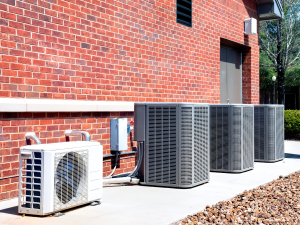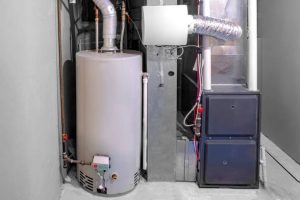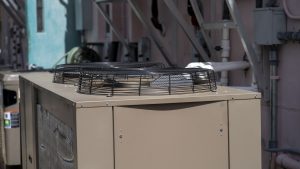Many homeowners find themselves making a serious comparison using electric heating vs. gas heating. While gas has traditionally been the main option for most, it’s true that electric heating has become a much more viable option for those looking to modernize or improve their energy efficiency. But how do you make a decision between these two options? American Home Water and Air has the answers.
We’ll go over the main differences between these two options, as well as the factors that should be taken into consideration before making a final decision. Read on to learn more so you can make the right choice based on your situation!
Heating System: Factors to Consider
Gas heating and electric heating are two common types of heating systems that are used to heat homes and buildings. “Is electric heat cheaper than gas?” is a commonly asked question about the two systems but there are other factors to consider. When looking at electric vs gas heating, there are several differences, including:
- Fuel source: Gas heating systems use natural gas as the fuel source, while electric heating systems use electricity.
- Installation costs: The installation cost for a gas heating system is typically higher than an electric heating system, as gas systems require a gas line to be run to the building, which can be a significant expense. However, electric heating systems may require a significant upgrade to the electrical system to accommodate the increased demand for power.
- Efficiency: Gas heating systems are generally more efficient than electric heating systems, as they can convert more of the energy in the fuel into heat.
- Reliability: Electric heating systems are generally more reliable than gas heating systems, as they do not require a fuel source and do not have the potential for gas leaks.
Issues with gas heating systems can include the risk of gas leaks, which can be dangerous, and the need for regular maintenance and repair. For those uncomfortable with using gas, electric heating may be the answer. However, issues with electric heating systems can include the cost of electricity and the potential for power outages during periods of high demand.
Heating with Electricity vs Gas: Operating Costs
The cost of operating a gas furnace versus an electric furnace can vary greatly depending on a number of factors, including the price of natural gas and electricity, the size of the home, and the efficiency of the furnace. However, as a general comparison, the cost of operating a gas furnace in Phoenix, Arizona is likely lower than that of operating an electric furnace.
In Phoenix, the average cost of natural gas is approximately $0.40 per therm, while the average cost of electricity is approximately $0.14 per kilowatt hour. The cost of heating a home with a gas furnace will depend on the efficiency of the furnace and the size of the home, but a highly efficient gas furnace could cost as little as $200 per year to operate, while a less efficient gas furnace could cost as much as $500 per year.
The cost of heating a home with an electric furnace will also depend on the efficiency of the furnace and the size of the home, but a highly efficient electric furnace could cost as much as $800 per year to operate, while a less efficient electric furnace could cost as much as $1,500 per year.
It is important to note that these are only rough estimates, and the actual cost of operating a gas or electric furnace in Phoenix, Arizona will depend on several factors, including the local cost of natural gas and electricity, the efficiency of the furnace, the size of the home, and the climate. It is recommended that homeowners consult with a heating and cooling professional to determine the actual cost of operating a gas or electric furnace in their homes.
Heating with Electricity vs Gas: Maintenance
Both gas and electric furnaces require regular maintenance to ensure optimal performance and efficiency. However, gas furnaces tend to require more maintenance than electric furnaces.
Gas furnaces require regular inspections to check for gas leaks and to clean the burners. The air filter also needs to be replaced regularly, and the furnace may need to be serviced to address any issues with the pilot light, blower motor, or other components.
On the other hand, electric furnaces tend to require less maintenance, as they do not have the potential for gas leaks and do not have as many moving parts as gas furnaces. However, they still require regular maintenance, such as cleaning and replacing the air filter, and periodic inspections to check for any issues with the heating elements, blower motor, or other components.
Heating with Electricity vs Gas: Energy Efficiency
The energy efficiency of a heating system depends on several factors, including the type of furnace, its age, and its efficiency rating. However, gas furnaces tend to be more energy efficient than electric furnaces in general.
Gas furnaces can be up to 97% efficient, meaning that almost all of the energy in the natural gas is converted into heat. High-efficiency gas furnaces are usually equipped with variable-speed blowers and sealed combustion chambers, which help reduce energy consumption and increase efficiency.
Electric furnaces are typically less energy efficient, as they convert only about 95% of the electrical energy they consume into heat. The efficiency of an electric furnace can also be impacted by the age of the furnace and its efficiency rating.
It is important to note that the actual energy efficiency of a furnace will depend on several factors, including the type of furnace, its age, its efficiency rating, and how well it is maintained.
Heating with Electricity vs Gas: Environmental Impact
The environmental impact of a heating system depends on several factors, including the source of the energy used to power the furnace and the efficiency of the furnace.
Gas furnaces that use natural gas from renewable sources, such as biogas, can be more environmentally friendly than electric furnaces that rely on non-renewable sources of electricity, such as coal or natural gas. However, the overall environmental impact of a gas furnace will also depend on the efficiency of the furnace and the emissions generated during the extraction and transportation of natural gas.
Electric furnaces that rely on renewable sources of electricity, such as wind or solar, can be more environmentally friendly than gas furnaces. The environmental impact of an electric furnace will also depend on the efficiency of the furnace and the efficiency of the electrical grid.
Endnote
When evaluating the differences in electric or gas heating, it is important to consider both the source of the energy used to power the furnace and the efficiency of the furnace when evaluating its environmental impact.
You can also read our article if you’re planning to switch from gas heating to electric heating.
An HVAC professional like American Home Water and Air can provide more information on the environmental impact of different heating systems and help determine the best option for a specific home. Contact us today to learn more by speaking to one of our professional representatives today.














